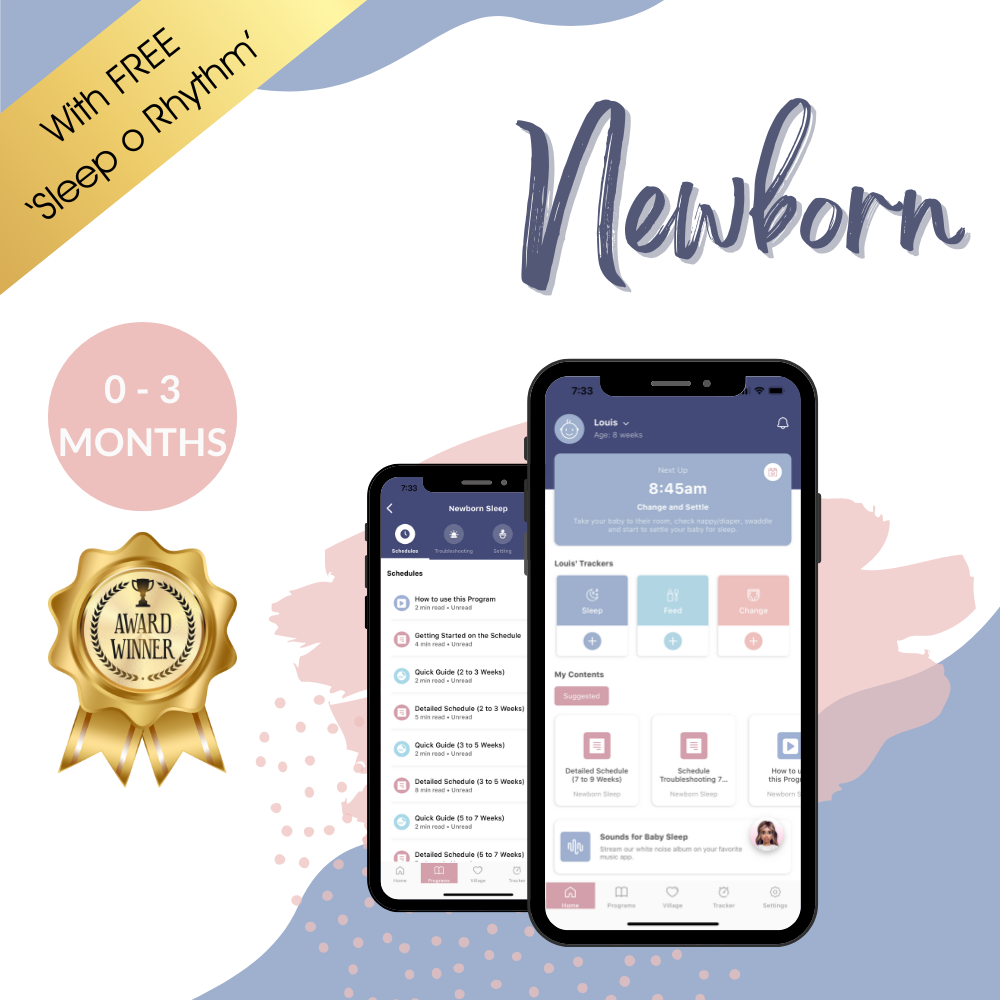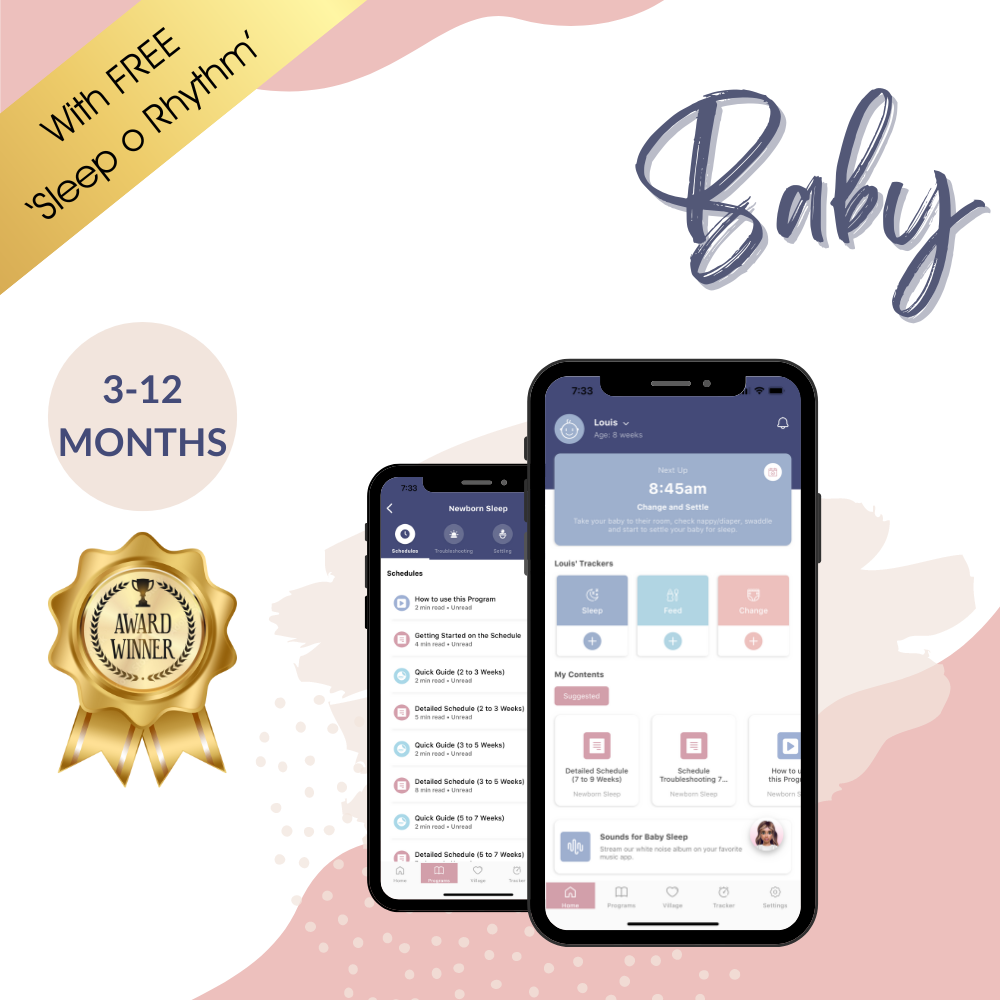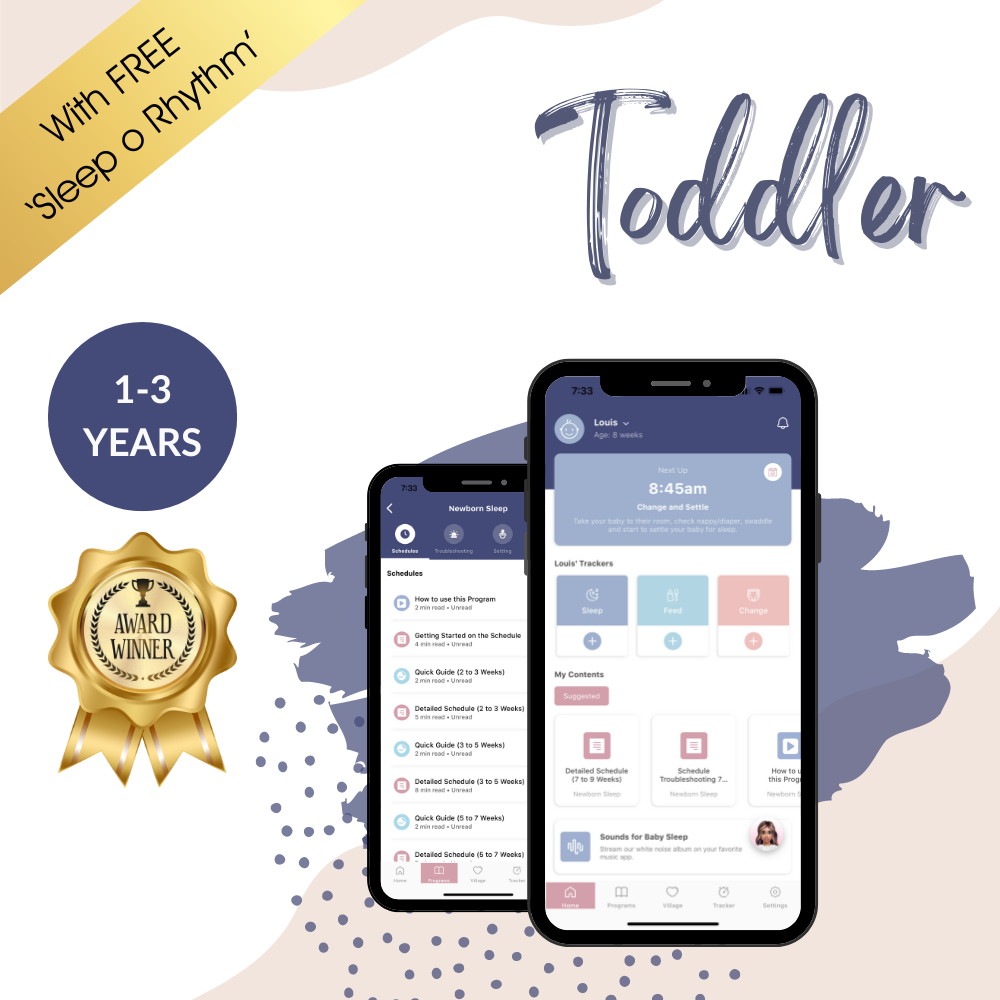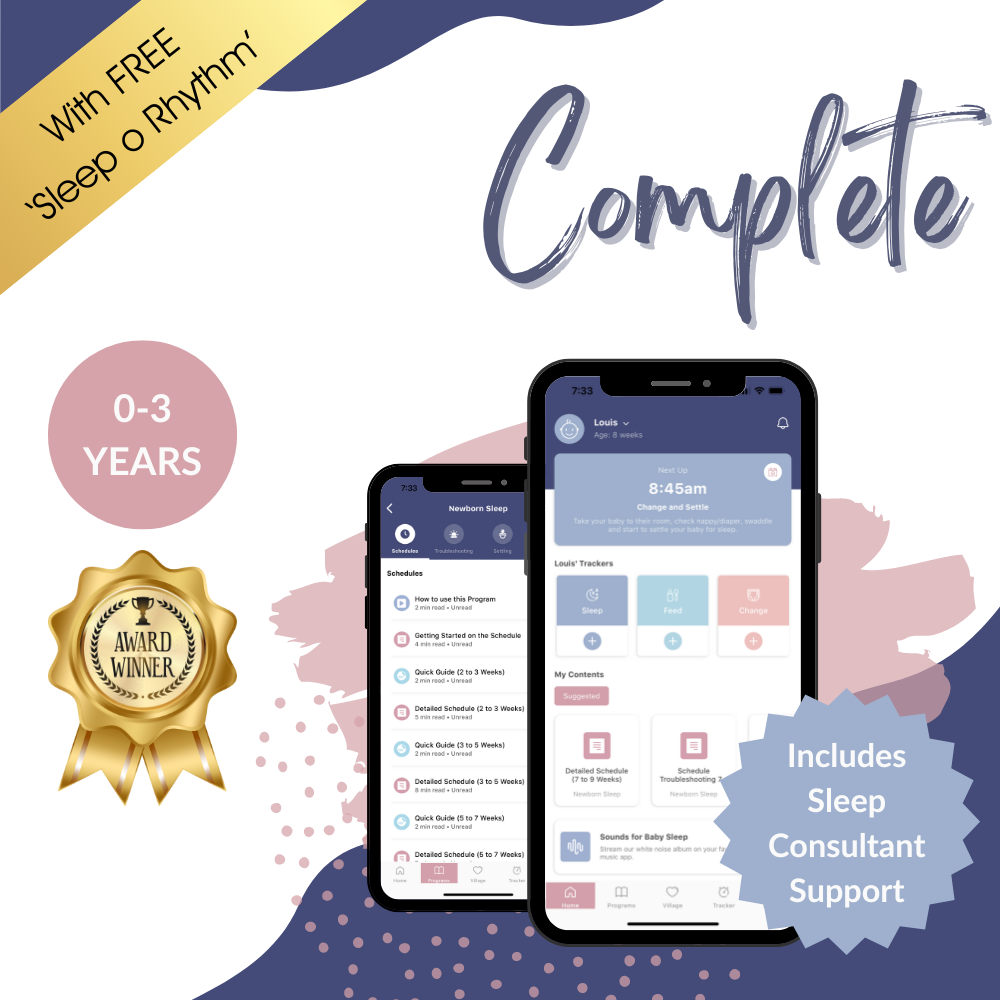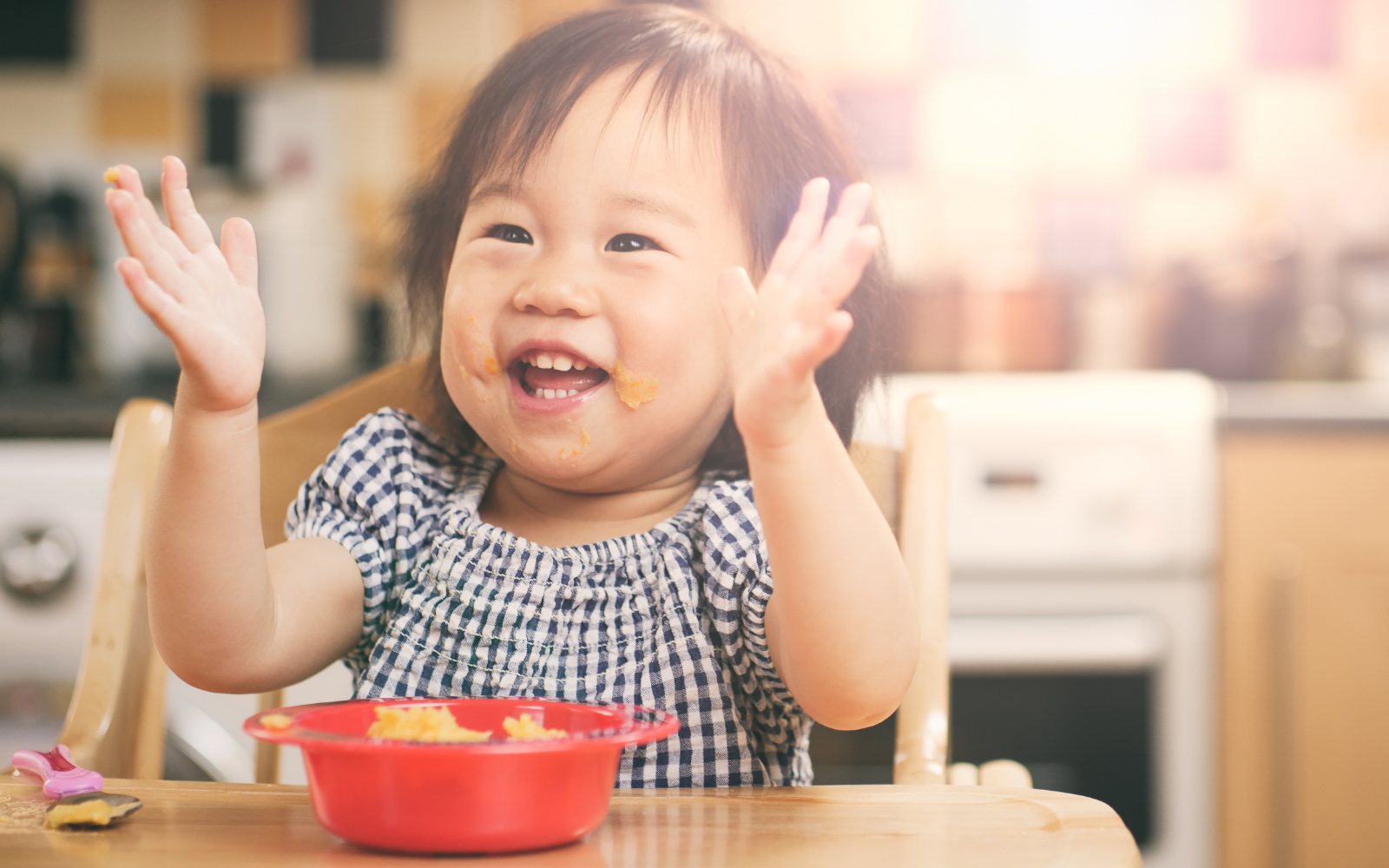
Foods That Help Your Baby Or Toddler Sleep Better
Most of us have experienced the impact that food can have on sleep, just looking at my coffee machine after 2 pm is enough to keep me up all night and most people have experienced feeling sleepy after a carb-heavy dinner.
Can food and nutrition help you and your baby sleep better?
Sleep is a complex thing, and no single food will cause a miraculous change to a bub’s ability to fall asleep and sleep through the night—it’s a small factor among other things like a good feed and sleep schedule, the right environment and the right overall nutrition.
Having said this, as a tired parent and lover of research I wanted to know what evidence there might be to lend us a helping hand in gaining any extra sleep we can for ourselves and our little ones.
So what does the research show? While it’s not conclusive, there are certain foods and nutrients of focus that are the most promising when it comes to helping us all to get some extra z’s:
First up, tryptophan-rich foods. The amino acid tryptophan is key in the production of serotonin and the sleep hormone melatonin and together these hormones help to regulate mood, sleep, and feelings of happiness. Tryptophan is found in foods like meats, nuts seeds, and dairy.
Yes, I want more sleep!
If you need a helping hand with tackling your baby’s sleep, then check out our Pediatrician-recommended Sleep Programs.
Get our Sleep Programs
A study of infants and children suggested that eating foods high in tryptophan earlier in the day significantly improved the quality of sleep for the little one, while a diet lower in tryptophan in the morning led to increased sleep onset latency, which simply put meant that it took little ones longer to fall asleep in the evening (1) or even more simply put “mum I need another glass of water”.
Next up we have complex carbohydrates, these help to regulate mood by impacting serotonin activity in the brain. Studies suggest that eating foods higher in carbohydrates close to bedtime is associated with increased sleepiness and can reduce the time it takes to get to sleep once the lights are out (2).
It is important, however, that these carbohydrates are complex carbohydrates such as whole grains, for example, brown rice, whole-wheat pasta & bread, or fruit & starchy vegetables as these are associated with better sleep quality, but simple carbohydrates like white bread or foods with added sugar can be associated with poorer sleep (3, 4).
Moving on to more specific foods that might help you sleep, let’s take a look at the humble Kiwifruit! These little green (sometimes gold) fruits are a powerhouse of nutrients. They are packed full of potassium, Vitamins E & C as well as folate.
Not only are they highly nutritious, but studies also suggest that kiwifruit can increase sleep onset latency, (the time it takes to get to snoozin’ once the lights have been turned off). In one study, the researchers found that people who ate two kiwifruits within an hour of bedtime fell asleep more quickly, slept more, and had better overall sleep quality (5).
The exact mechanism of why kiwifruit helps us to sleep is not completely clear, it may be that they contain serotonin. It could also be that they are high in antioxidants, which help to reduce oxidative stress that has been associated with poorer sleep (6). Or it could also be the high folate content of kiwifruit (as folate deficiency has been associated with insomnia) that helps to keep us napping (7).
Another type of fruit that shows some promising research when it comes to sleep is sour and tart cherries. One study found that two servings of sour cherry juice per day increased sleep quality, while another study found that there was an increase in melatonin in urine samples as well as a significant increase in total sleep time and sleep quality in individuals that consumed tart cherries each day compared to those that consumed a placebo (8,9,10)
Try to pick up cherries during the cherry season (which is unfortunately very short) remove the pit and freeze to be able to use throughout the year, alternately supermarkets often stock bags of frozen cherries for when they are out of season.
Say goodbye to sleepless nights.
Join over 800,000 families worldwide who are enjoying excellent sleep with our Sleep Programs, created by experts in the field of pediatric sleep.
Get our Sleep Programs
Note: when giving cherries to little ones I would recommend removing the pit, stewing then straining through a colander to ensure no pits are left, you could add this to top porridge or yogurt.
Finally, a food that also swims into the spotlight when it comes to overall sleep quality is oily fish, like salmon, tuna, sardines, and mackerel. Why do oily fish help with sleep? The research suggests that it could be due to the high levels of omega-3 fatty acids and vitamin D that are present in oily fish as these play an important role in the body’s production of melatonin (11).
So there you have it, what we eat can have an impact on our sleep and the sleep of our little ones, so next time you’re at the supermarket consider adding some of the above foods to your trolley, you never know, they might just help the whole family to get a good quality night's sleep. An added benefit is that research suggests that the relationship between diet and sleep works both ways and that the better our sleep quality is, the healthier we eat (12)!
Note: Remember that dietary changes impact us in many other ways so make sure to consult with your doctor or your little one’s doctor before implementing any significant changes to your own or their diet.
References:
- Harada, T., Hirotani, M., Maeda, M., Nomura, H. and Takeuchi, H. (2007). Correlation between Breakfast Tryptophan Content and Morningness–Eveningness in Japanese Infants and Students Aged 0–15 yrs. Journal of PHYSIOLOGICAL ANTHROPOLOGY, 26(2), pp.201-207.
- Afaghi, A., O'Connor, H. and Chow, C. (2007). High-glycemic-index carbohydrate meals shorten sleep onset. The American Journal of Clinical Nutrition, 85(2), pp.426-430.
- St-Onge, M., Mikic, A. and Pietrolungo, C. (2016). Effects of Diet on Sleep Quality. Advances in Nutrition, 7(5), pp.938-949.
- Kwan, R., Thomas, S. and Mir, M. (1986). Effects of a Low Carbohydrate Isoenergetic Diet on Sleep Behavior and Pulmonary Functions in Healthy Female Adult Humans. The Journal of Nutrition, 116(12), pp.2393-2402.
- Lin, H. H., Tsai, P. S., Fang, S. C., & Liu, J. F. (2011). Effect of kiwifruit consumption on sleep quality in adults with sleep problems. Asia Pacific journal of clinical nutrition, 20(2), 169-174.
- Tsaluchidu, S., Cocchi, M., Tonello, L., & Puri, B. K. (2008). Fatty acids and oxidative stress in psychiatric disorders. BMC psychiatry, 8(1), 1-3.
- Kelly, G. S. (1998). Folates: supplemental forms and therapeutic applications. Alternative medicine review: a journal of clinical therapeutic, 3(3), 208-220.
- Pigeon, W., Carr, M., Gorman, C. and Perlis, M. (2010). Effects of a Tart Cherry Juice Beverage on the Sleep of Older Adults with Insomnia: A Pilot Study.Journal of Medicinal Food, 13(3), pp.579-583.
- Howatson, G., Bell, P., Tallent, J., Middleton, B., McHugh, M. and Ellis, J. (2011). Effect of tart cherry juice (Prunus cerasus) on melatonin levels and enhanced sleep quality. European Journal of Nutrition, 51(8), pp.909-916.
- Pigeon, W., Carr, M., Gorman, C. and Perlis, M. (2010). Effects of a Tart Cherry Juice Beverage on the Sleep of Older Adults with Insomnia: A Pilot Study.Journal of Medicinal Food, 13(3), pp.579-583.
- Patan, Michael J., et al. "Differential Effects of DHA-and EPA-rich oils on sleep in healthy young adults: a randomized controlled trial." Nutrients 13.1 (2021): 248.
- Golem, D. L., Martin-Biggers, J. T., Koenings, M. M., Davis, K. F., & Byrd-Bredbenner, C. (2014). An integrative review of sleep for nutrition professionals. Advances in nutrition, 5(6), 742-759.


